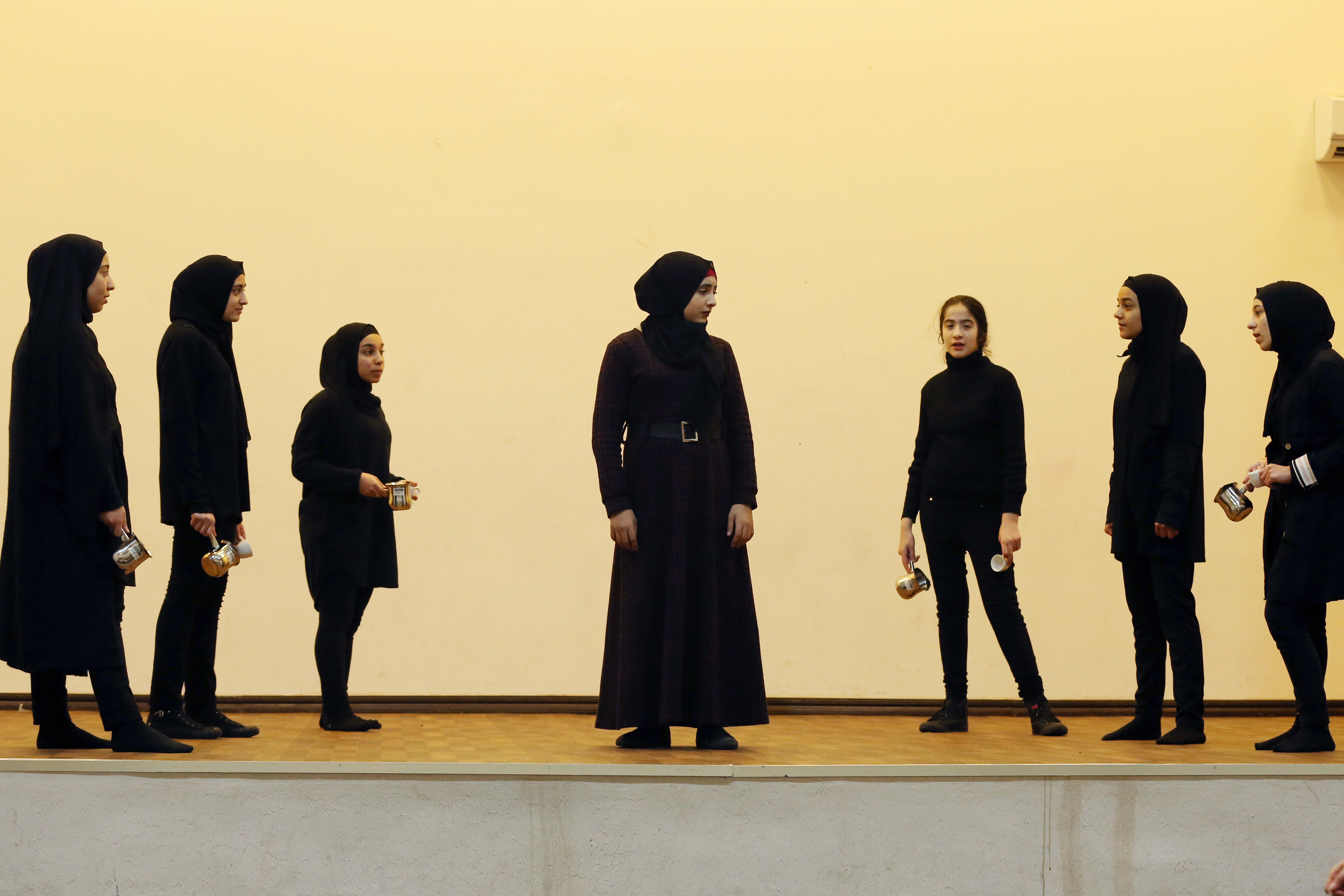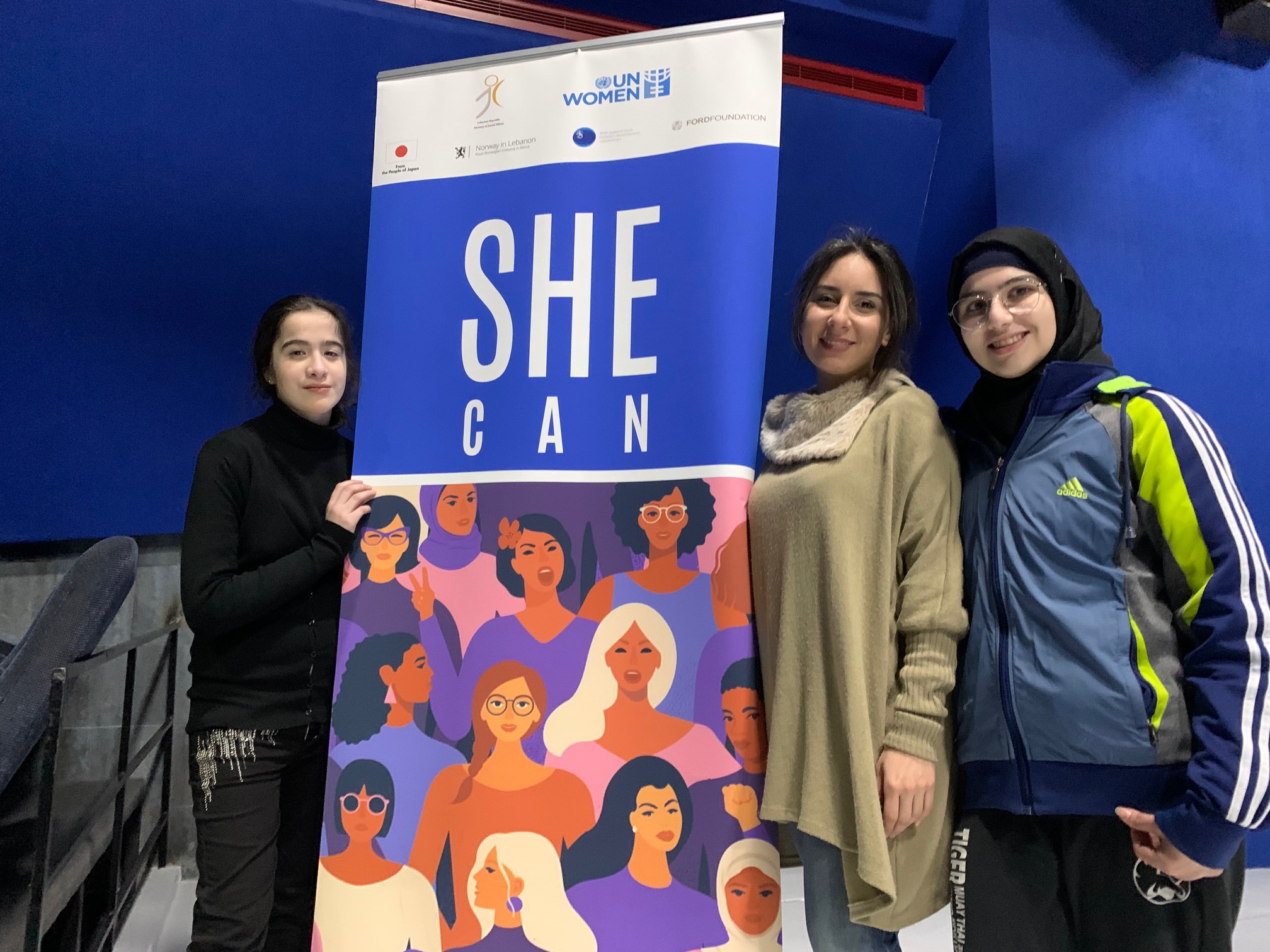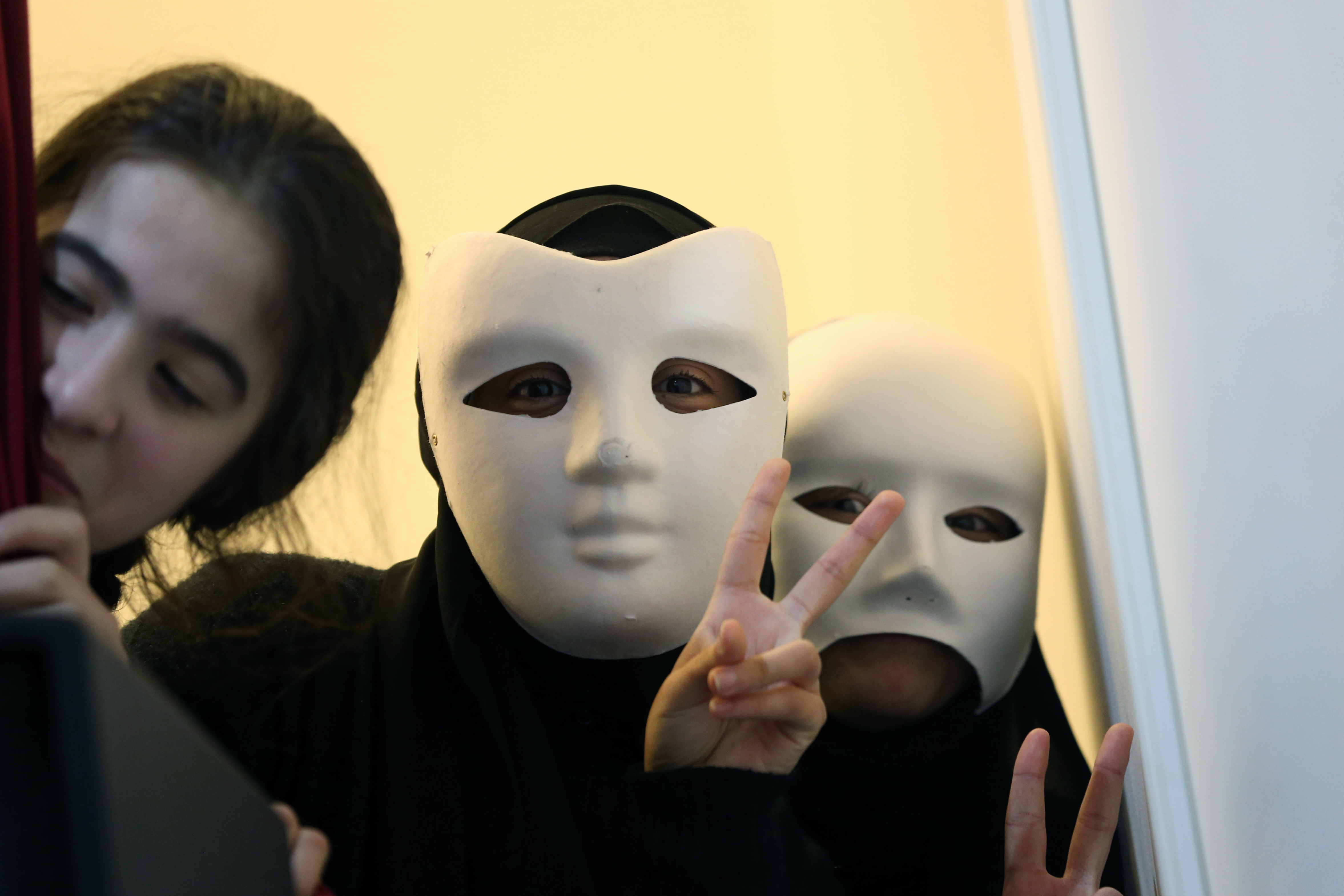In Lebanon, art therapy helps women and girls to overcome entrenched gender inequalities
Date:

Holding her newborn child, a young woman makes her way to the stage followed by other young women gathered around her and awaiting the reveal of her baby’s gender. Upon realizing that the newborn is a girl, cheers slowly become weeping.
This art performance is held at Abjad theater, a community center located in the northern Lebanese city of Tripoli, in front of an audience of Lebanese and Syrian women and girls aged 13 years and older, coming from Tripoli neighborhoods including Tal, Jabal Mohsen, Kobbe, Abou Samra and Mina.
It is one of several performances which aim to bring to light the harmful practices of gender inequalities, covering topics such as gender discrimination in education, social peer pressure, early marriage, trafficking, and early pregnancies, inspired by real stories shared by young female teens. The performance uses the art therapy approach, which empowers women and girls to express themselves freely and articulate their feelings constructively, supporting them to manage stress and trauma and to develop the skills to overcome gender inequalities and entrenched discriminatory traditional values that impact on their lives.
Sarah, an 18-year-old Syrian refugee living with her family in Tripoli, is one of the participants in this interactive theater production alongside her 12-year-old sister, Yasmina. “These acting classes changed my life. Not only have they allowed me to have more confidence, but they also opened my eyes to gender issues in our society” she said.
The play she performed in, ‘Tomorrow is a Better Day’, is one of many activities of the “She Can” initiative aimed at strengthening the economic empowerment and protection of women and girls in Lebanon. Funded by UN Women through the generous support of the Governments of Japan, Norway and Finland, this programme is implemented by CARE International, in partnership with the Lebanese Ministry of Social Affairs, since August 2019.

Performing in this interactive production provided Sarah with the opportunity to tour Lebanon and learn more about the importance of empowering women and girls, who are, just like men and boys, driven by society to embody stereotypes. “While preparing for the theater play, I understood that everything is possible, that I could choose my life’s path, and make my life better. I want to build my own career and I dream of becoming an air hostess” she added.
Sarah and her sister Yasmina are among 13 young girls who are performing in the interactive theatre activities. The audience in Tripoli was composed of both Lebanese and Syrian girls and women, who were later able to interact with the performers and discuss the topics delivered on stage.
With its expressive art therapy sessions, and theater productions carried out in Tripoli, Akkar and Beirut, and attended by 880 women and girls so far, the project aims to contribute to a movement that reinforces dialogue and engages men and boys as allies in order to make a difference, at the community level.
This programme demonstrates how applying innovative approaches can help to bring positive change to the lives of vulnerable women and girls.
